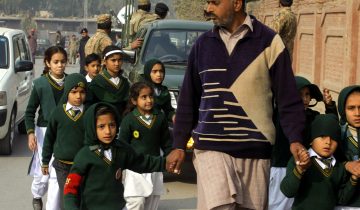Congressman Arrested For Spreading Fake News: Plight of Journalism in India

Recently a Congress member from Nagaland has been arrested on the charges of creating and posting the December 20 fake/forged letter written by chief minister T.R Zeliang and addressed to the governor of Nagaland. It stated that, in pursuance to the resolution adopted in the assembly and owing to strong public demand to resign for paving the way to bring an early settlement of Naga political issue, the chief minister and his team of cabinet minister’s resignation with immediate effect. Following the FIR filed by the CM’s office on December 20, the cyber police registered a case. According to SP (crime and PRO), Temjensenla Jamir, on Tuesday evening, the accused has admitted that he had created and circulated the fake/forged letter.
Introduction
“If you tell a lie big enough and keep repeating it, people will eventually come to believe it.” The quote that is often, and ironically, wrongly attributed to Joseph Goebbels sums up the plight of journalism in India.Claire Wardle of First Draft, a UK-based non-profit organization which is now part of the Shorenstein Center on Media, Politics and Public Policy at Harvard, categorized misinformation into seven categories, namely satire or parody, misleading content, imposter content, fabricated content, false connection, false content and manipulated content. All of the above-mentioned forms exist in our country.
For the past few years, India has been majorly divided into people who strongly support the government and who staunchly oppose it. This is one of the fundamental right of democracy, freedom of speech and expression. But this right is often misconstrued as saying and publicizing anything without any regards for the authenticity of the information. Journalism is a field that has the power to decide the fate of the country.People constantly form opinions and beliefs based on what they see and read. Thus by default Journalism incorporates, honesty and integrity in its definition. But sadly some of the ‘well-known’ journalists are focused on appeasing certain political parties and making profits at the cost of journalistic probity. The consequences of fake news can be life-threatening. For example, rumours on WhatsApp about strangers abducting children led to mob violence and the killing of seven men in the central Indian state of Jharkhand. The seven men were innocent passersby and the rumours proved false.
Political Biases In Journalism
According to a 2012 report by Business Standard, more than a third of news channels in India are owned by politicians or political affiliates, who use their channels as “political vehicles” to influence the course of local elections. While anchors having an opinion is not new, force-feeding their views to the public and leaving out information that contradicts with their ideals is definitely not acceptable. For example in the South, channels like Sun TV, Kalaignar TV, and Makkal TV, have used news broadcasts to provide favorable coverage to one party or another. Some of these channels have also refrained from coverage of issues that may cast the party with which they are affiliated in a negative light.
With the advent of technology, the gravity of fake news has tremendously increased.Repetitive tweets and posts on a particular topic, or hashtag, are aimed at trending the related subject to the extent that it becomes a popular, believable narrative.
Journalism As An Honourable Profession
As described above, the power of journalism is enormous. It can make or break the country. While it is absolutely necessary to have free speech for the efficient functioning of the country, one should be mindful of what they say and read. There are instances from past where journalism has changed the discourse of the country, overthrew a government, saved lives and helped refugees. Somehow, along the way some journalists have seem to forgotten their main purpose and has become mere puppets in the hands of bureaucrats and public. With more than 80,000 print publications and close to 400 news channels, India’s journalism is growing but it has a long way to go in terms of widespread independent coverage.




